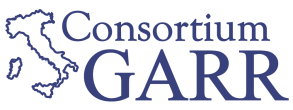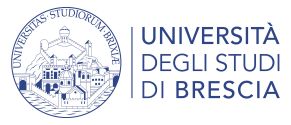Paolo Bellagente
30 maggio
- Digital Twin

Biografia
Paolo Bellagente consegue a pieni voti la laurea Magistrale in Ingegneria Elettronica presso l’Universitá degli Studi di Brescia (UniBS) nel 2014. Tra il 2013 e il 2015 é stato titolare della Exerit Srls startup di progettazione e realizzazione di sistemi web-based complessi. Nel 2017 é Visiting Research Student presso l’Intelligent Social System Lab della University College of London e nel 2018, consegue il dottorato di ricerca in Technology for Health con una tesi dal titolo “L’Internet delle Cose come piattaforma per applicazioni sanitarie” presso l’Universitá degli Studi di Brescia. Dal 2018 é ricercatore del gruppo di Elettronica Embedded e Sensori Intelligenti del Dipartimento di Ingegneria dell’Informazione UniBS occupandosi di architetture per l’IoT e tecnologie di raccolta dati per la smart city. Autore di numerose pubblicazioni scientifiche é reviewer ufficiale per la rivista MDPI Sensors, membro dell’IEEE Instrumentation and Measurement Society e della IEEE IoT Technical Community. Nel 2020 segue lo sviluppo e personalizzazione del software Geowallace anche al fine del tracciamento dei soggetti covid positivi nell’area di interesse della provincia di Brescia come consulente per l’unitá di epidemiologia dell’ATS di Brescia. É docente di informatica presso il Dipartimento di Giurisprudenza e Visione artificiale tridimensionale presso il Dipartimento di Ingegneria dell’Informazione dell’Universitá degli Studi di Brescia. É coinvolto nel PNRR nello spoke 7 (Cooperative, Connected and Automated Mobility , Connected Networks and Smart Infrastructure) del Centro Nazionale Mobilitá Sostenibile.
Biografia
Paolo Bellagente consegue a pieni voti la laurea Magistrale in Ingegneria Elettronica presso l’Universitá degli Studi di Brescia (UniBS) nel 2014. Tra il 2013 e il 2015 é stato titolare della Exerit Srls startup di progettazione e realizzazione di sistemi web-based complessi. Nel 2017 é Visiting Research Student presso l’Intelligent Social System Lab della University College of London e nel 2018, consegue il dottorato di ricerca in Technology for Health con una tesi dal titolo “L’Internet delle Cose come piattaforma per applicazioni sanitarie” presso l’Universitá degli Studi di Brescia. Dal 2018 é ricercatore del gruppo di Elettronica Embedded e Sensori Intelligenti del Dipartimento di Ingegneria dell’Informazione UniBS occupandosi di architetture per l’IoT e tecnologie di raccolta dati per la smart city. Autore di numerose pubblicazioni scientifiche é reviewer ufficiale per la rivista MDPI Sensors, membro dell’IEEE Instrumentation and Measurement Society e della IEEE IoT Technical Community. Nel 2020 segue lo sviluppo e personalizzazione del software Geowallace anche al fine del tracciamento dei soggetti covid positivi nell’area di interesse della provincia di Brescia come consulente per l’unitá di epidemiologia dell’ATS di Brescia. É docente di informatica presso il Dipartimento di Giurisprudenza e Visione artificiale tridimensionale presso il Dipartimento di Ingegneria dell’Informazione dell’Universitá degli Studi di Brescia. É coinvolto nel PNRR nello spoke 7 (Cooperative, Connected and Automated Mobility , Connected Networks and Smart Infrastructure) del Centro Nazionale Mobilitá Sostenibile.
Abstract
La generazione dei dati nel monitoraggio strutturale real-time. Caso d'uso Next Generation EU
Il monitoraggiodello stato di salute (SHM) delle strutture ha iniziato a essere utilizzato per acquisire una conoscenza più approfondita delle condizioni e dell'evoluzione delle infrastrutture di trasporto, poiché il loro sviluppo e la loro manutenzione sono fondamentali per garantire il benessere e la sicurezza delle attività umane. L'obiettivo di questo lavoro è quantificare l'ordine di grandezza della quantità di dati prodotti da un progetto di SHM, utilizzando come riferimento un caso di prova reale nel nord Italia.
Presentazioni
Video
 Bio
Bio
Paolo Bellagente graduated with honours in Electronic Engineering from the University of Brescia (UniBS) in 2014. Between 2013 and 2015 he was owner of Exerit Srls startup of design and implementation of complex web-based systems. In 2017, he is Visiting Research Student at the Intelligent Social System Lab of the University College of London and in 2018, he obtains his PhD in Technology for Health with a thesis entitled "The Internet of Things as a platform for healthcare applications" at the University of Brescia. Since 2018 he has been a researcher in the Embedded Electronics and Smart Sensors group of the UniBS Department of Information Engineering dealing with IoT architectures and data collection technologies for smart cities. Author of numerous scientific publications, he is an official reviewer for the journal MDPI Sensors, a member of the IEEE Instrumentation and Measurement Society and the IEEE IoT Technical Community. In 2020 he follows the development and customization of Geowallace software also for the tracking of covid positive subjects in the area of interest of the province of Brescia as a consultant for the epidemiology unit of the ATS of Brescia. He is a lecturer of computer science at the Department of Law and Three-dimensional Artificial Vision at the Department of Information Engineering of the University of Brescia. He is involved in PNRR in spoke 7 (Cooperative, Connected and Automated Mobility, Connected Networks and Smart Infrastructure) of the National Centre for Sustainable Mobility.
 Abstract
Abstract
On data throughput in real-time structural health monitoring: a next-gen. Eu funded project use case
Structural Health Monitoring (SHM) has started to be used to gain a deeper knowledge of infrastructure conditions and the evolution of transport infrastructures, as their development and maintenance are crucial to ensure the wealth and safety of human activities. The goal of this paper is to quantify the order of magnitude of the amount of data produced by a SHM project using a real test case in northern Italy as a reference.





